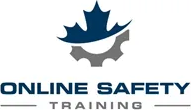Cargo Securement Safety Training

The Benefits of Cargo Securement Safety Training
Cargo securement is a critical aspect of the transportation industry, ensuring that goods are transported safely and securely to their destinations. Whether it’s trucks, trailers, or other vehicles, improperly secured cargo poses significant risks to both road safety and the integrity of the cargo itself. Cargo securement safety training is essential for individuals working in the transportation industry to prevent accidents, injuries, and cargo damage. In this article, we will explore the numerous benefits of cargo securement safety training and how it contributes to creating a safer, more efficient, and more compliant transportation sector.
- Reduction in Accidents and Injuries
The primary benefit of cargo securement safety training is a significant reduction in accidents and injuries. Properly secured cargo prevents load shifts, which can lead to accidents like rollovers or loss of control. Training programs educate drivers and cargo handlers on the correct techniques for securing various types of cargo, ensuring that loads remain stable and accidents are minimized.
- Compliance with Regulations
Cargo securement regulations vary by jurisdiction, but they are universally stringent to protect road safety. Failure to comply with these regulations can result in legal consequences, fines, and disruptions to business operations. Cargo securement safety training programs are designed to ensure that drivers and cargo handlers understand and adhere to regional and national safety standards, helping organizations remain compliant.
- Enhanced Cargo Protection
Proper cargo securement not only prevents accidents but also protects the integrity of the cargo being transported. Cargo that shifts or becomes damaged during transit can lead to financial losses and potential liability issues. Cargo securement training ensures that cargo is secured in a way that minimizes the risk of damage and ensures safe arrival at its destination.
- Reduction in Liability
Accidents caused by improperly secured cargo can result in liability claims against transportation companies. Cargo securement safety training minimizes the risk of accidents, reducing the likelihood of legal action, settlements, and associated expenses. This helps organizations protect their financial interests and reputation.
- Customized Training
Cargo securement safety training can be customized to address specific cargo types, transportation methods, and industry regulations. Organizations can tailor the training to account for unique factors such as hazardous materials, oversized loads, or specialized equipment. Customized training ensures that employees are well-prepared to secure cargo specific to their industry, reducing the risk of incidents related to their specific cargo requirements.
- Increased Efficiency
Well-trained cargo handlers and drivers can secure cargo more efficiently. They understand how to use equipment and techniques effectively, which can reduce the time spent on cargo securement tasks. Increased efficiency not only improves productivity but also minimizes the time that cargo handlers and drivers are exposed to potential safety hazards.
- Emergency Response Preparedness
Cargo securement training includes instruction on emergency response procedures. Participants learn how to react effectively in critical situations, such as load shifts or accidents involving unsecured cargo. Being prepared for emergencies minimizes their impact and ensures a timely and effective response, which can be crucial in mitigating potential accidents and injuries.
- Reduction in Workers’ Compensation Claims
Proper cargo securement can lead to a reduction in workers’ compensation claims. When employees are well-prepared and educated on safe cargo handling practices, they are less likely to sustain injuries on the job. Fewer workplace injuries mean fewer claims, which can lead to lower insurance premiums and cost savings for employers.
- Boosted Worker Morale
Employees who receive cargo securement safety training are more likely to feel valued and cared for by their employers. This can boost morale and job satisfaction among cargo handlers and drivers, leading to higher retention rates and increased loyalty to the organization. A happy and satisfied workforce is more likely to adhere to safety guidelines and contribute to a safer work environment.
- Cultivation of a Safety Culture
Implementing cargo securement safety training fosters a culture of safety within the organization. When employers invest in the education and training of their cargo handlers and drivers, it sends a clear message that safety is a top priority. Employees are more inclined to adopt safe practices and encourage their colleagues to do the same, creating a safer work environment and promoting safety as a shared value.
Cargo securement safety training is an indispensable component of workplace safety in the transportation industry. By reducing the risk of accidents and injuries, ensuring compliance with regulations, protecting cargo integrity, and reducing liability, it significantly contributes to creating a safer, more efficient, and more compliant transportation sector. Moreover, it equips cargo handlers and drivers with the knowledge and skills needed to properly secure cargo and prevent accidents during transit.
Investing in cargo securement safety training is not merely a legal requirement; it is a crucial step in safeguarding the well-being of employees, protecting cargo, and ensuring the overall success of transportation operations. It is an investment in both safety and efficiency, ultimately benefiting the organization as a whole. Cargo handlers and drivers who prioritize cargo securement through proper training not only protect themselves but also contribute to a safer and more reliable transportation industry.
Click here for an online Cargo Securement Safety Training course.
Click here for National Safety Code for cargo securement information
Categories
- Aerial Lift
- ATV Training
- Bear Awareness
- Chainsaw Training
- Confined Space
- Defensive Driving
- Forklift Training
- Lockout Tagout
- Online Safety Training
- Overhead Crane
- Pipeline Construction Safety Training
- Propane Handling
- Safety Training Benefits
- Scissor Lift
- Skid Steer Training
- Space Awareness
- TDG
- Telehandler Forklift
- Traffic Control
- Train the Trainer course
- Training Course
- Uncategorized
- WHMIS
- Workplace Harassment and Violence Preventiont
